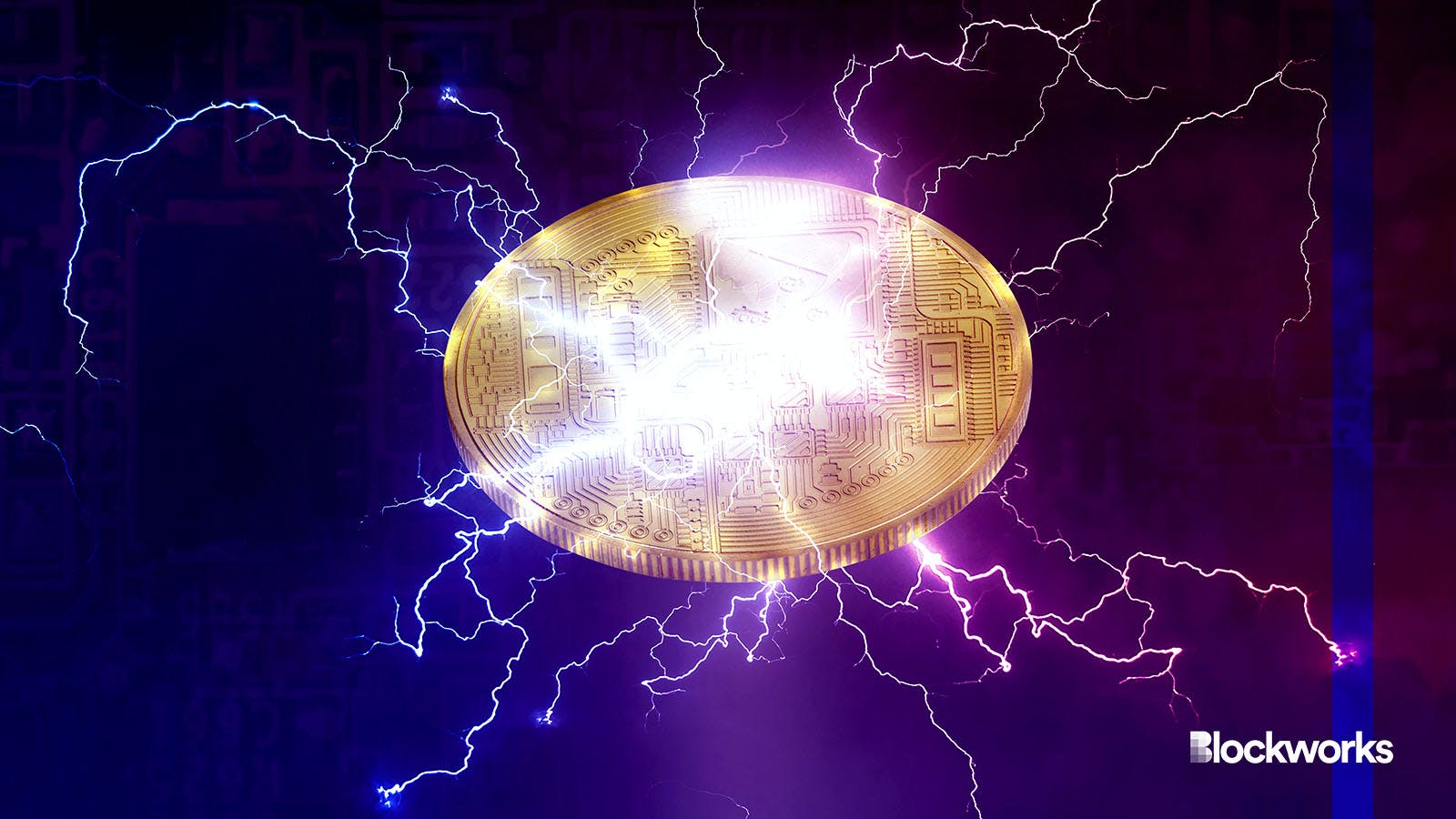Lightspark hopes Bitcoin Lightning payment standard will strike interest
Lightspark is aiming to break down global payment barriers, throwing its weight behind a new standard intended to make payments as easy as sending an email

bumbumbo/Shutterstock, modified by Blockworks
Bitcoin Lightning network-based business payments service Lightspark threw its support for the new Universal Money Address (UMA) standard on Monday, positioning it as a game-changer in making global payments as “easy as sending an email.”
The open-source initiative facilitates real-time settlement while incorporating compliance messaging and foreign exchange capabilities for fiat currencies.
Launched last week, UMA is being touted as an extension of LNURL, a standard protocol designed to simplify the process of making payments, according to its GitHub repository.
UMA boasts secure transactions and open payments in any currency, leveraging bitcoin’s global liquidity, for cost-effective solutions, Lightspark said in a statement on Monday.
According to UMA’s documentation, the standard’s operation is delineated into four key steps:
- The sender’s Virtual Asset Service Provider (VASP) contacts the receiver’s VASP using the recipient’s UMA, gathering essential information like the receiver’s preferred currency and applicable legal regulations.
- The sender then specifies the amount to send in the receiver’s currency, incorporating all requisite legal and compliance data.
- Following this, money is transferred using standard Lightning Network procedures. An invoice is generated by the receiver’s provider, which the sender settles.
- Finally, the transaction is logged with a compliance provider for record-keeping and any subsequent analysis.
Led by David Marcus, known for his previous involvement in Meta’s unsuccessful Libra stablecoin and as a former PayPal executive, Lightspark is hoping to attract business users by solving the oft-criticized user experience pain point associated with digital asset applications.
Lightspark operates within a competitive arena alongside established projects like Ripple and Stellar, both of which already offer cross-border payment solutions.
Unlike Strike, Lightspark targets enterprise users and is not available for individuals’ personal use.
To bolster adoption, Lightspark said it is offering enterprise-grade SDKs in multiple programming languages, such as Go, Rust, JavaScript/typescript, Python, and Kotlin+Java.
Bitnob, an Africa-focused cross-border payments company, has already jumped on board, becoming the region’s first to adopt UMA as part of the company’s own growth and activation program.
Additional adopters are expected to include industry players like Coins.ph, Foxbit, Ripio, and Xapo Bank, focusing primarily on cross-border transactions.
Meanwhile, infrastructure platforms Bakkt and Zero Hash have announced plans to incorporate UMA into their service offerings, extending the standard’s reach further, Lightspark said.
Get the news in your inbox. Explore Blockworks newsletters:
- The Breakdown: Decoding crypto and the markets. Daily.
- Empire: Crypto news and analysis to start your day.
- Forward Guidance: The intersection of crypto, macro and policy.
- 0xResearch: Alpha directly in your inbox.
- Lightspeed: All things Solana.
- The Drop: Apps, games, memes and more.
- Supply Shock: Bitcoin, bitcoin, bitcoin.






